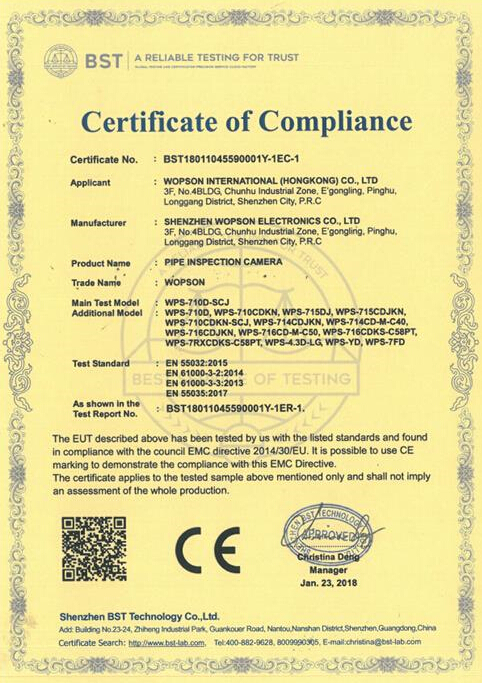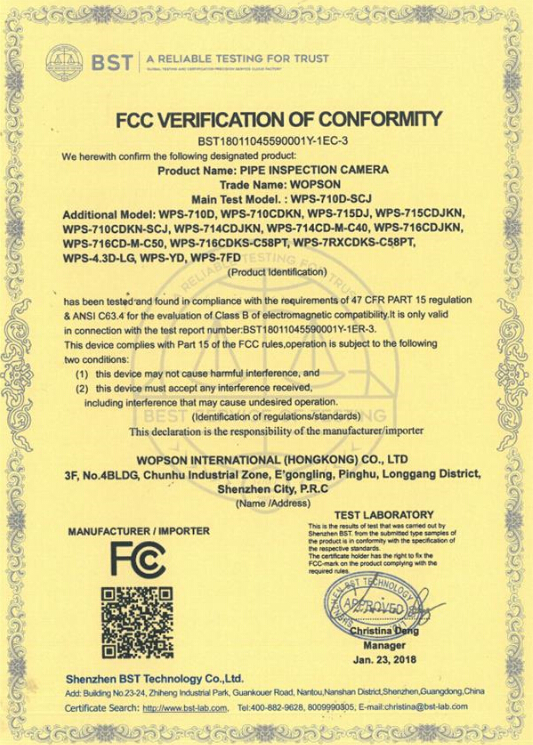Contact Details
-
- Email : lily@wopson.com
- Phone : 008615814409614
- Fax : 008675584692156
- Address : 3F,No.4BLDG, Chunhu Industrial Zone , E'gongling,Pinghu, Longgang District,Shenzhen City, P.R.C
News
-
Industrial inspection camera detection rules
2019-01-03
With the development of industry and the advancement of scientific research technology, industrial inspection camera s are increasingly used in the industry. It plays an important role as a non-destructive testing tool. And we need to use industrial inspection camera s correctly, and correctly detect and judge the problems, in order to reflect the value of industrial inspection camera s.
(1) Crack. When the light beam illuminates the surface of the object to be detected, black or bright lines are observed, and at a certain magnification, when the line has irregular edges, it is judged to be a crack. When the crack is wide, the measurement influence line of the measurable probe will bend.
(2) peeling. When the beams were irradiated in parallel, it was observed that there was a shadow behind the convex portion; when the beam irradiation angle was changed, it was observed that the convex portion of the surface and the surrounding object were clearly separated, and it was judged as peeling.
(3) Pull wires and scratches. Under the irradiation of the light beam, it was observed that there was a regular continuous long line on the surface, and it was judged as a pull line.
(4) Pit bulges. When the beam is illuminated at an angle, it is connected to the boundary of the surrounding object without a dividing line. The part near the light source has a shadow, and there is a bright shadow from the light source, which is a pit. When the beam is illuminated at an angle, it is connected to the boundary of the surrounding object without a dividing line. The raised portion has a bright shadow and the back shadow is a pit. When the pit is deep or the protrusion is high, the measuring line of the measurable probe is bent.
(5) Spots. When the light beam was irradiated, a smooth uneven surface which was different in color from the surrounding object was observed as a spot.
(6) Corrosion. Under the irradiation of the light beam, a blocky, point-like matte surface was observed, and the slight unevenness was corroded at a certain magnification.
(7) Not welded. A clear dividing line between the molten metal and the base metal and the weld layer was observed.
(8) Solder leakage. When the beam is irradiated at a certain angle, it is observed that it is connected to the molten metal, and the protrusion without the boundary line is a solder leak.
(9) Excess. When the light beam is irradiated at an arbitrary angle, there is an object other than the structure having a difference in color and brightness of the surrounding basic object.
(10) Assembly defects. Structural phenomena that did not conform to the technical conditions of the pattern were observed during the test.
(11) Dimensional measurement. The measuring probe can be used to measure the shape and size when required.

